
The re-election of Donald Trump, who has promised to rescind the United States’ carbon-cutting pledges, casts a long shadow over the COP29 climate talks, which begin Monday in Azerbaijan.
Following further warnings that 2024 is expected to surpass temperature records, nations travel to Baku for the primary UN climate diplomacy event, which intensifies a contentious discussion over climate spending.
Trump’s return, however, will cast a shadow over the talks, as there are concerns that the US’s impending withdrawal from the historic Paris Climate Accord would result in less zeal at the bargaining table.
Ralph Regenvanu, Vanuatu’s special envoy for climate change and the environment, stated, “We cannot afford to let the momentum for global action on climate change be derailed.”
“We will keep arguing to the incoming president of one of the biggest polluters in the world that this is a shared problem that cannot be solved without international cooperation.”
Many officials who have historically arrived early in COP negotiations to add weight to the proceedings, like outgoing US President Joe Biden, are staying absent.
Only a small number of leaders from the Group of 20, whose nations produce almost 80% of the world’s emissions, are there.
However, this will be the first time Afghanistan has sent a delegation since the Taliban took control. It is anticipated that they will be considered observers.
Diplomats have emphasized that the important job at hand—namely, reaching a consensus on a new amount for climate aid to developing nations—will not be diminished by the absences or Trump’s victory.
A $100 billion annual goal must be raised by negotiators to assist developing countries in weaning their economies off of fossil fuels and preparing for the effects of climate change.
Some of the main issues include who will pay, how much will be offered, and who will have access to the money.
“It is difficult.”
It’s challenging. It has to do with money. Adonia Ayebare, the Ugandan leader of a bloc that includes more than 100 nations, primarily developing nations and China, told AFP on Sunday that when it comes to money, everyone reveals their actual selves.
Trump, who has dubbed climate change a “hoax” on numerous occasions, has promised to withdraw the US from the Paris Agreement.
Ayebare, however, dismissed the possible repercussions of a US exit, pointing out that Trump had already removed Washington from the Paris pact during his first term.
“This has occurred previously; we will find a way to realign.”
Developing nations are demanding trillions of dollars and insist that grants, not loans, should make up the majority of the funding.
They caution that without the funding, they will find it difficult to provide bold revisions to their climate targets, which nations must submit by the beginning of next year.
As the chair of the LDC Climate Group, which has 1.1 billion members, Evans Njewa advised, “Bring some money to the table so that you show your leadership.”
However, the small number of wealthy nations that now make contributions would like to see the donor pool enlarged to include other wealthy countries and major emitters, such as China and the Gulf states.
During a closed-door meeting on Sunday, a Chinese official cautioned that the goal of the discussions should not be to “renegotiate” current accords.
Negotiators should instead deal with “the climate crisis collectively, constructively,” according to Liang Pei, a representative of China’s Ministry of Ecology and Environment.
“Valuable”
New warnings that the globe is far from meeting the objectives of the Paris agreement accompany the talks.

The climate agreement pledges to limit warming to less than 2C, ideally less than 1.5C, over pre-industrial levels.
However, according to the European Union climate monitor, the world is expected to surpass that threshold in 2024.
Although it would not immediately violate the Paris Agreement, which tracks temperatures over many years, it does indicate that far more urgent climate action is required.
The United Nations issued a warning earlier this year that, if current trends continue, the Earth will warm by a disastrous 3.1C this century.
Annalena Baerbock, the foreign minister of Germany, stated that “everyone knows that these negotiations will not be easy.”
“But they are worth it: fewer crises, less suffering, and less displacement result from every tenth of a degree of warming avoided.”
The seminars are scheduled for November 11–22 and are anticipated to draw over 51,000 attendees. Following the United Arab Emirates last year, a nation that is strongly dependent on fossil fuels will host the discussions for the second consecutive year.
Additionally, Azerbaijan has been charged with suppressing dissent through the persecution of political opponents, the detention of activists, and the suppression of independent media.



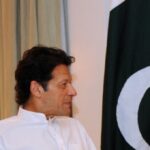
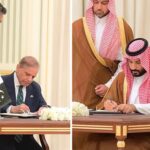

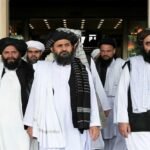

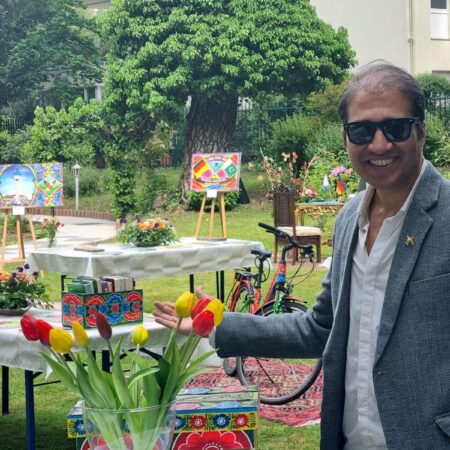
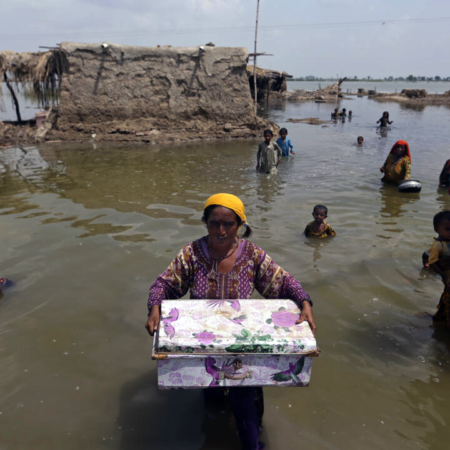


No Comment! Be the first one.